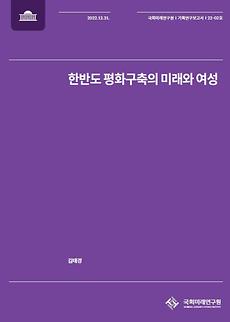
The objective of this study is to examine and anticipate the evolution of sustainable peacebuilding on the Korean Peninsula, with a particular focus on the perspective of women. By delving into the perspectives and aspirations of women in relation to peacebuilding from a mid-to-long-term standpoint, we aim to promote changes in the current peace process on the Korean Peninsula, where the participation and representation of women remain inadequate. This study employs a qualitative research methodology through the utilization of Focus Group Interviews (FGI) with a sample population of women who possess an inclination toward issues of peace and security. Through the examination of the perspectives and experiences of these participants, this study aims to provide insight into the gendered dimensions of security and peace discourse and how they reflect the sociocultural context in which individuals internalize gender-specific attitudes, values, practices, and norms. The study is guided by the UN Women, Peace, Security (WPS) agenda and comprises three distinct sub-topics: the intersection of women and daily safety, the relationship between women and their workplace and home environments, and the broader implications of these issues for women as a whole. The findings of our Focused Group Interview (FGI) study, which surveyed a sample of five groups of 25 women, ranging in age from their 20s to 60s and residing in the city of Seoul, indicate that women perceive peace as a multifaceted concept encompassing elements such as personal safety, quality of life, equality, and fairness. Our FGI participants consistently highlighted that South Korea is not a safe society for women and that gender inequality persists in workplaces and families, despite the absence of legal discrimination. Regarding peace on the Korean Peninsula, the participants expressed a diverse array of perceptions of threats and offered a wide range of suggestions for achieving future peace and integration. Our results on women's preferences for safety in daily life, the assurance of quality of life, and the attainment of equality and justice suggest that peace should be comprehensively defined in terms of women's human security and human rights for sustainable peacebuilding. Furthermore, the study highlights the need for peacebuilding efforts aimed at achieving "positive peace" to be implemented in conjunction with traditional "negative peace" efforts in the peace process on the Korean Peninsula.